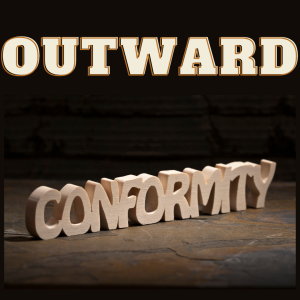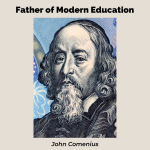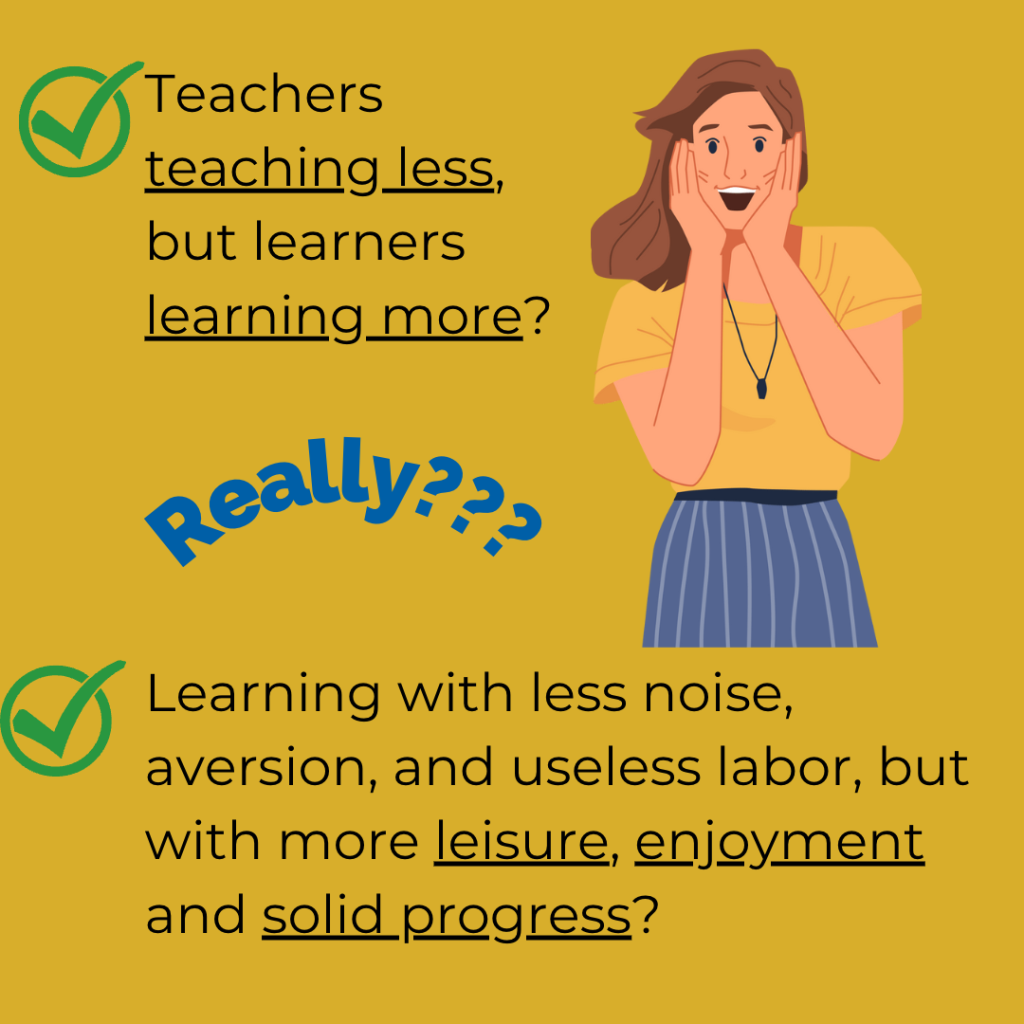In the seventeenth century, a Christian teacher named John Comenius, came to believe that it was possible for students to enjoy learning.
But before we get into that, let’s look at educational ideas that had come before. I’d like to quote a bit from Education That is Christian, by Dr. Lois LeBar. (LeBar was one of the preeminent Christian educators of the mid-twentieth century, and chair of Christian Education at Wheaton.) She described two elements that affect a student’s learning:
- Outer factors (things outside of the learner—the teacher, the course of study, the room, etc.);
- Inner factors (things inside of the learner—their attitudes, their experiences, their ideas, etc.)
Outer Factors in Learning

Memory and imitation stand out as the chief methods. . .
Because study was not interesting, discipline was severe. Because individuality was suppressed, art and science were undeveloped, literature barren and formulistic. . .
Even when education gave priests or artisans practical preparation for taking their places in society, this preparation was mechanical and stereotyped. The stress was upon outward conformity.”
Balancing Inner Factors and Outer Factors in Learning
“The education that the Lord God gave the Jewish people whom He chose for His own purposes was theocentric and practical, with a salutary balance between inner and outer factors. . .
He taught them by questions and moral discipline, memorization and sensory appeal. . .
These were also the methods of Christ Jesus, the Master Teacher. . .”
LeBar closes her review of the history of education with these thoughts:
“Thus we see that throughout the ages teachers have most often considered their task to be that of exposing pupils to factual content and of getting them to give back in words this outer knowledge. They have relied almost wholly upon verbal communication of facts.”
And then comes her zinger: “How much of the factual knowledge to which you were exposed in high school is now your personal possession?”
Ouch! I don’t know about you, but very little of what I studied in high school remains with me to this day. And that, my friends, is what we are seeking to change in the lives of our own children.

With that as a brief background, listen to what Comenius wrote in his transformational book on learning, The Great Didactic. In the preface, he described his goal,
“To seek and to find a method of instruction, by which teachers may teach less, but learners may learn more, by which schools may be the scene of less noise, aversion, and useless labour, but of more leisure, enjoyment and solid progress; and through which the Christian community may have less darkness, perplexity, and dissension, but on the other hand, more light, orderliness, peace, and rest.”
How is this possible?
I believe that if we can make learning come alive through the power of enjoyment, if our kids are encouraged to play with what they are learning and be actively engaged, that something dramatic will happen in their education.
I’m looking forward to next week, where we will actually address how teachers can teach less and learners learn more. We’ll be looking at some of the most recent discoveries about the brain, and what has been learned about learning.
Remember, stay relational.



